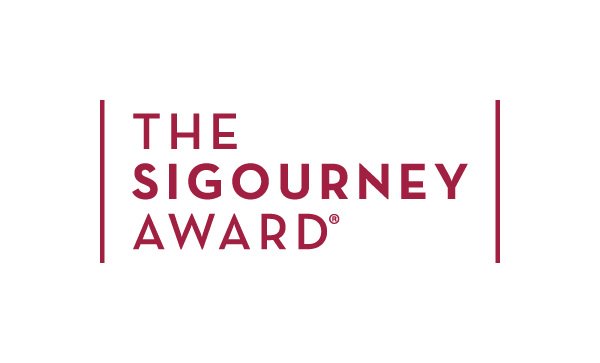Dr. Jorge Claudio Ulnik Wins The Sigourney Award-2021
/Innovative Psychosomatic And Psychodermatology Work Exemplifies Mind-Body Relationship And Earns Argentinian Dr. Jorge Claudio Ulnik The Sigourney Award-2021
Seattle, WA — Nov. 18, 2021 – The Sigourney Award annually rewards achievements that advance psychoanalytic thought with international recognition and a substantial cash prize. This year’s distinguished panel of independent judges reviewed applications from five continents. Today, William A. Myerson, Ph.D., MBA, and co-trustee of The Sigourney Trust announces Dr. Jorge Claudio Ulnik’s work in psychosomatics and psychodermatology and the work of two others have won The Sigourney Award-2021.
“Our founder, Mary Sigourney, intended to recognize and promote outstanding work that advances psychoanalytic thought and its ability to better humankind worldwide. Dr. Ulnik’s work reinvigorating medical and clinical interest in psychosomatic psychoanalytics exemplifies Mary’s vision,” says William A. Myerson, Ph.D., MBA, the Trust’s psychoanalytic co-trustee.
The innovative psychosomatic and psychodermatologic work developed by Dr. Jorge Ulnik exemplifies the important work being done on the mind-body relationship from a psychoanalytic perspective. Dr. Ulnik is a psychiatrist, psychoanalyst and Associate Professor of Pathophysiology and Psychosomatic Diseases (School of Psychology), and Adjunct Professor of Psychiatry and Mental Health (School of Medicine) at the Buenos Aires University in Argentina. His work represents an innovation that continues the work of Freud (“the skin is the erogenous zone par excellence”) and pioneers such as Enrique Pichón-Rivière, Max Schur, Didier Anzieu, Esther Bick, and others. At the psychosomatic dermatology center founded by Dr. Ulnik, dermatologists refer patients to psychoanalytic therapy, continuing and strengthening psychoanalytic perspectives into areas primarily thought of as medical. Dr. Ulnik's work has helped to revitalize psychosomatic research, theory, and practice in Latin America, Spain, and Russia.
These concepts are taught at the Buenos Aires University, and widespread in social networks, medical publications, and congresses, and are of interest to psychoanalysts working with infantile mental states, attachment disorders, and somatic disorders.
“We live in times of bubbles, shells and screens. All of them insufficient wrappings – a kind of second skin – as a defense against the social and affective distancing that has been imposed on us. On the contrary, the recognition of the Sigourney Award will enable us to break barriers and continue building bridges between psyche and soma that can be crossed by physicians and patients, thus achieving a closer, more humane and personalized medical practice and a greater well-being in patients. At the same time, it leads us to continue working and researching to restore psychoanalysis to the place that general practitioners and specialists need it to occupy together with them in the difficult task - and art - of healing,” says Dr. Ulnik.
His work also reached Europe, North America, Australia, South Korea, and Israel, revitalizing interest in research and promoting awareness of psychoanalysis’ importance in the treatment of somatic diseases. The work encouraged doctors and patients to work with psychoanalysts and advanced psychoanalytic understanding of emotional engagement expressed by the body and specially by the skin. Presentations of this work in many cities where psychoanalytic approaches are not integrated into medical practices have supported the importance of psychoanalysis in treating psychosomatic disorders, and helped doctors and general practitioners to understand the mind-body connection. His book, Skin In Psychoanalysis (2007), translated in four languages and published in five countries, further shares this work’s benefits.
Apart from clinical work, Dr. Ulnik’s work includes development of film debates, conducting a Spanish cycle of cinema and psychoanalysis in London celebrating the 100th anniversary of the International Journal of Psychoanalysis. These activities directed to the general public were then replicated in medical circles, TV, and Internet, facilitating a better knowledge and understanding of psychoanalysis and promoting it as a method for the deep comprehension of the human mind and the mind-body relationship.
According to Dr. Ulnik, millions of patients worldwide suffer from psychosomatic disorders and meanwhile, the study of psychosomatics has faded in many analytical institutes. Consequently, young analysts may not value the important contribution that psychoanalytic psychosomatics has made in theory and practice of analysis. The intention of his work is to revive interest in this vital area. His work expands audiences, by not only helping patients with skin or other somatic diseases, but by understanding why an allergy arises after a traumatic event, a psoriasis after a separation, etc. It advances in the understanding of the body language of the early childhood, in the symbiotic bonds of disorganized attachment, in the massive identifications, in the role of the own image and that of the others in the human psyche.
This award-winning work adds to a long list of innovative contributions advancing psychoanalytic thought that, since 1990, have been honored with The Sigourney Award, an independent international prize. This year, work by the Massachusetts-based nonprofit, Erikson Institute For Education, Research, and Advocacy of the Austen Riggs Center, and Maryland-based physician-psychoanalysts, Dr. David Scharff and Dr. Jill Savege Scharff, was also deemed award-worthy.
“We are encouraged to receive and reward the diverse submissions which represent the expansion of reach and impactful role of psychoanalytic thought around the world,” says Barbara Sherland, J.D., attorney co-trustee of The Sigourney Trust.
This year’s winning work will be highlighted with individual videos on The Sigourney Award website in early 2022. Applications for The Sigourney Award-2022 will be accepted in March 2022 for work completed between 2011 and 2021. The Sigourney Award includes a substantial cash prize.

